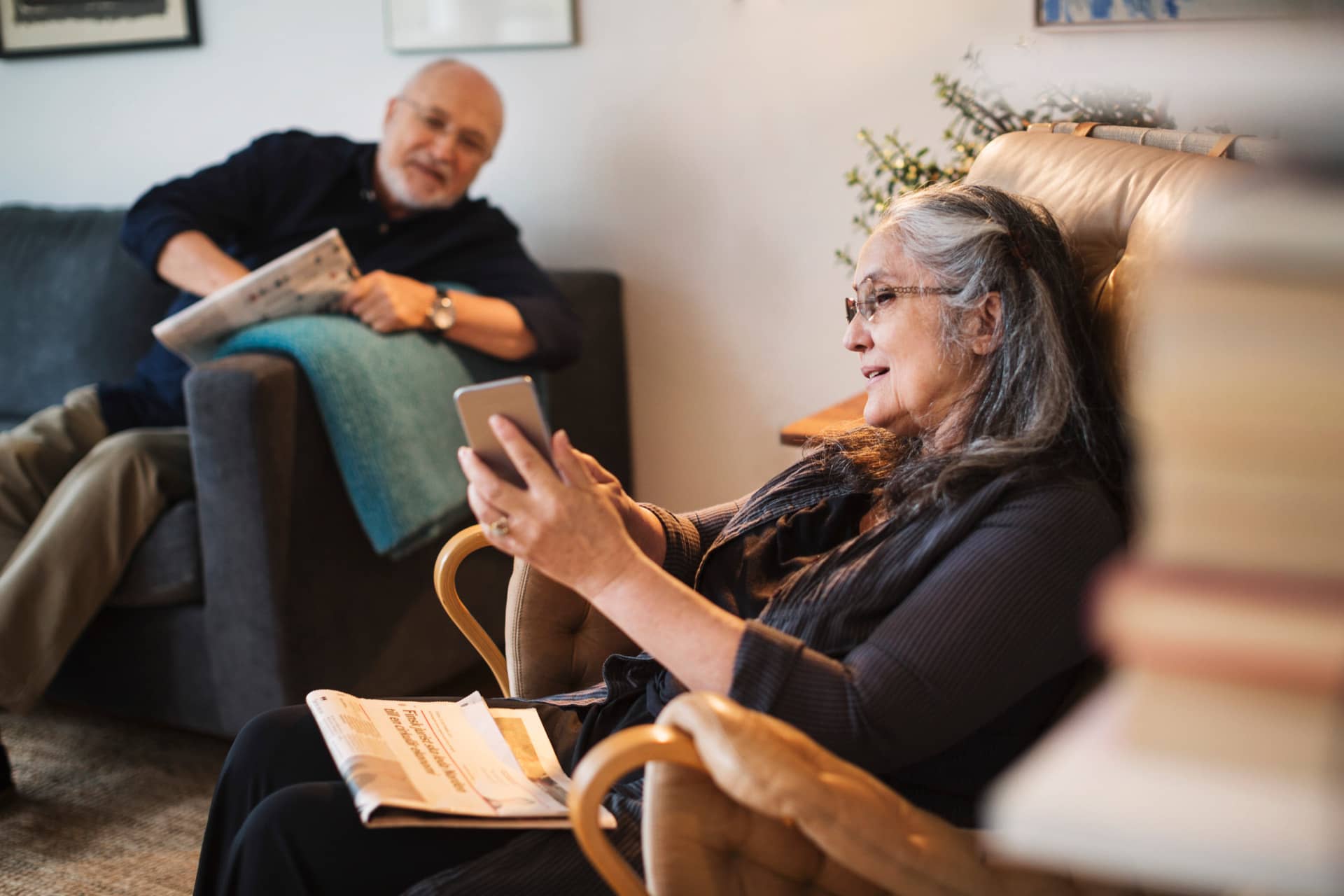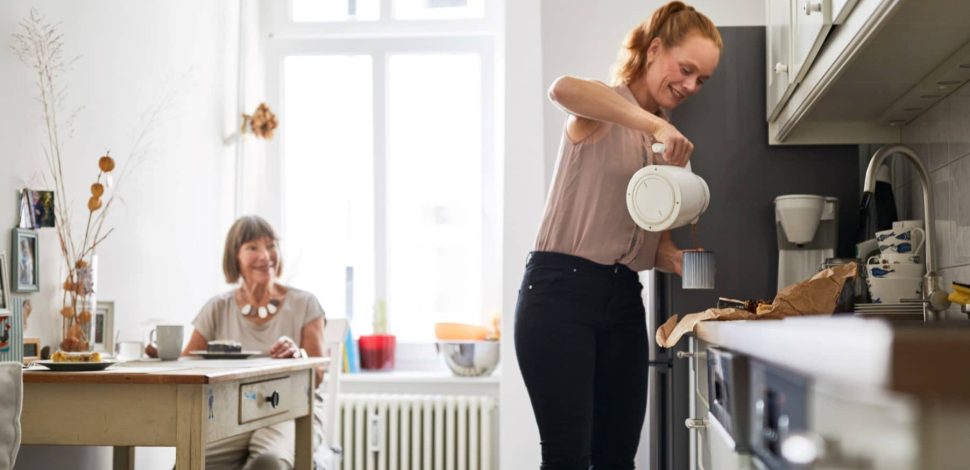Respite care: how can caregivers get help?
Various measures are in place to give long-term carers time off, so they can rest or attend to other needs. Respite care homes are one available solution.
Who are caregivers?
The French law of December 28, 2015 (the “ASV law”), introducing changes to be made to adapt to an ageing population, provides a official definition of caregiver.

A caregiver can be:
- the spouse of the person requiring long-term care, or
- the civil union partner,
- the domestic partner,
- a child,
- a relative,
- or an acquaintance, such as a friend or neighbor,
who assists them with one or more activities of daily living (ADL) “on a regular and non professional basis”.
Activities of daily living include these five essential, everyday activities: getting out of bed, moving around, personal hygiene, getting dressed and eating.
The caregiver does not necessarily share the home of the care recipient.
What difficulties do caregivers face?
According to the Drees (the French division in charge of statistics), 37% of caregivers juggle caring with paid employment, and 47% state that providing care has negatively impacted their physical or mental health in at least one way. This percentage increases to 64% when the caregiver is a spouse or partner living with the care recipient.

What respite is available for caregivers?
The ASV law created the “right to respite” to give family caregivers time off to rest and attend to other needs. The right to respite is an allowance to help finance solutions that give the caregiver a break during the day or even take a vacation. If the carer will be absent a few hours or an evening, the care recipient can attend an adult day/evening care facility. These are run by non-profits, geriatric hospitals or nursing homes (called Ephad in France). Overnight care may also be offered, mainly by Ephad nursing homes.
If the caregiver will be absent for several days, the care recipient can stay:
- temporarily in a specialised residence (an independent living facility for seniors)
- in a nursing home (Ephad)
- in a family home (where an individual or family hosts the care recipient in exchange for a fee)
- in their own home, with services provided by a home aide (domestic assistance, meal delivery, home health care, etc.).
“Respite care homes can welcome the care recipient as well as their carer, for all or part of the stay. They provide an effective support system and respite for caregivers’ in their daily roles. We are proud to support, through the philanthropy of AXA France health insurers, the Fondation France Répit and its creation of innovative respite homes, first in Lyon and then in Boulogne-Billancourt. They provide a place where children and adults with a medical condition or disability, as well as their caregivers, can recharge and get support,” says Katell Clère, Technical Director, Reputation and Innovation, AXA Santé et Collectives.
The respite care allowance was €510.26 in 2022. This annual amount is funded in France by the departmental council. To qualify, the care recipient must collect the long-term care allowance (“APA”) for seniors and have come to the end of their associated APA plan. In addition, the caregiver must be someone whose care or presence is indispensable and who cannot be replaced by another person in the care recipient’s life.
In the event that the caregiver is hospitalized, they receive an additional allowance, from the department, of up to €1,013.77 per hospital stay. The allowance must be used to pay for temporary accommodation or a home aide for the care recipient. If the caregiver’s hospitalization has been scheduled, they must file a request for the allowance with the departmental council as soon as possible and, in any case, no later than one month before the hospital admission date.
What are caregiver support and respite platforms?

Platforms have been created, initially to provide support and respite for caregivers of people with a neurodegenerative disease (e.g. Alzheimer’s disease, Parkinson’s disease, multiple sclerosis) or another disabling condition (e.g. cancer, a rare disease), regardless of the care recipient’s age. In 2021, however, their scope was expanded to include seniors requiring long-term care and people of any age with a disability.
These platforms provide a range of services for family caregivers:
- training
- respite services at home for a half-day
- assistance in sourcing a care facility
- cultural and social outings so seniors and caregivers can enjoy a shared experience and meet people
- caregiver discussion groups
- partnership offers for vacations and recreational activities
Most of the services are free. There are 220 support and respite platforms in France, according to the Caisse nationale de solidarité pour l’autonomie (CNSA). The CNSA’s online directory helps caregivers find nearby resources: https://www.pour-les-personnes-agees.gouv.fr/annuaire-points-dinformation-et-plateformes-de-repit





 Actualité précédente
Actualité précédente  Toutes les actualités
Toutes les actualités